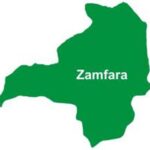Oyo and Zamfara states provide almost no budget information, have non-existent spaces for public consultation, and run opaque procurement processes.
This was revealed in the Subnational Budget Transparency Survey 2020 released in Abuja on Wednesday by the Civil Resource Development and Documentation Centre (CIRDDOC) and funded by the Foreign, Commonwealth Development Office (FCDO).
- Police kill 4 pirates, one robbery suspect in Akwa Ibom
- Woman turns down marriage proposal over insult on Kwankwaso
In terms of budget transparency, Jigawa performed best on the Index with a score of 90.
Akwa Ibom, Ekiti, Kaduna, and Ondo states each scored above 60, meaning they provided significant budget information, spaces for public participation throughout the budget process, and information on procurement.
The majority of states scored between 20 and 60, meaning they provided minimal to some information on the budget.
The report revealed that Nigerian states have significantly improved budget transparency and participation and improved the robustness of the procurement process with an average score of 42 out of 100.
The Chairman of the event, Dr. Otive Igbuzor, said states in Nigeria are gradually improving in budget and procurement transparency.
“It is important to note that the efficacy of the budget determines the success of governments in meeting societal needs,” he said.
The Executive Director of CIRDDOC, Mrs. Ral Nwankwo-Obioha, said the goal of the project was to instill transparency in budgeting and budget process across the 36 states of the federation.
Mrs. Nwankwo-Obioha said budget transparency entails that all citizens should access information on how much is allocated to different types of spending, what revenues are collected, and how international donor assistance and other public resources are used.
“Having access means they’ll be in a better position to participate in the hearings and contribute to how the country’s resources are used and to hold Government accountable,” she said.

 Join Daily Trust WhatsApp Community For Quick Access To News and Happenings Around You.
Join Daily Trust WhatsApp Community For Quick Access To News and Happenings Around You.


